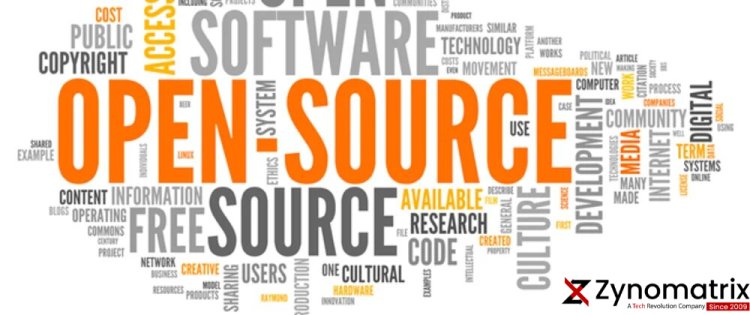"Open Source Contribution: How to Get Involved on GitHub"
Open source software fuels innovation and knowledge sharing, but the journey of becoming an open source contributor can be intimidating. In this blog post, we'll demystify the process of getting involved in open source projects on GitHub. We'll discuss selecting the right project, forking repositories, making contributions, and interacting with the open source community. By the end, you'll have the knowledge and confidence to embark on your open source journey, collaborate with passionate developers worldwide, and enhance your coding skills.

Introduction:
Open source contribution is not just a way to give back to the global tech community; it's a path to personal growth, collaboration, and skill enhancement. GitHub, the world's leading platform for open source development, opens doors for anyone looking to make meaningful contributions to open source projects. In this blog post, we'll guide you through the process of getting involved in the world of open source on GitHub. Whether you're a seasoned developer or a newcomer, we'll show you how to navigate the open source landscape and become a valued contributor.
Open Source Contribution: How to Get Involved on GitHub
Open source software is at the heart of innovation, and contributing to open source projects is an excellent way to gain experience, collaborate with the global tech community, and give back to the software world. GitHub, the world's leading platform for open source development, provides an array of tools and opportunities for you to jump into the open source world. In this blog post, we'll walk you through the steps to get involved and make meaningful contributions to open source projects on GitHub.
Understanding Open Source
Before diving into the "how," it's important to understand the "why." Open source software is developed collaboratively by a community of developers, and the code is made available for free to the public. This approach fosters innovation, transparency, and collective problem-solving. By contributing to open source projects, you can be part of this global effort and enhance your skills while doing so.
Choosing the Right Project
One of the first steps in contributing to open source is selecting the right project. GitHub hosts a myriad of open source projects across various domains, from web development to machine learning and beyond. Start by identifying projects that align with your interests, expertise, and goals. Look for projects with welcoming communities and active maintainers.
Forking the Repository
Once you've found a project, you're ready to start contributing. The first step is to fork the project's repository. This creates a copy of the project under your GitHub account, allowing you to make changes without affecting the original codebase. This forked repository will be your sandbox for contributions.
Making Your Contributions
Contributions can take various forms, including fixing bugs, adding features, improving documentation, or resolving issues. For code changes, create a new branch in your forked repository for each contribution. Commit your changes and make sure to follow the project's contribution guidelines, if available.
Opening a Pull Request
When you're satisfied with your contribution, it's time to open a pull request (PR). A pull request is a formal request to merge your changes into the original project. Describe your changes clearly in the PR and provide any necessary context. The project maintainers will review your PR and may ask for revisions or approve and merge it.
Engaging with the Community
Open source contribution is not just about code; it's also about building relationships within the community. Engage in discussions, offer help to others, and learn from experienced contributors. GitHub's social features, such as issues, discussions, and wikis, are valuable tools for community interaction.
Review and Continuous Improvement
Feedback is a fundamental aspect of open source collaboration. Your contributions may undergo review, and you'll receive suggestions for improvement. Embrace this feedback as an opportunity to grow as a developer and enhance your code.
Maintaining Your Contributions
Open source contributions are ongoing. After your contributions are merged, consider staying engaged with the project. Respond to issues, help with documentation, and continue to contribute to the community.
What's Your Reaction?





















